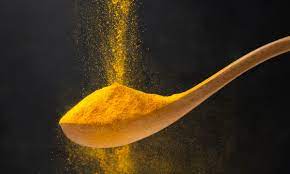Introduction
Turmeric and its active ingredient, curcumin, have been used in traditional medicine for centuries. While it may not be the next wonder drug, turmeric has been linked to a number of health benefits—and may even help fight some diseases. Here’s what you need to know about this trending spice before you start adding it to your dishes…
There’s been a lot of buzz around turmeric.
Turmeric has been used in Indian and Asian cuisines for thousands of years. It’s also used in medicine as an anti-inflammatory, antioxidant, and pain reliever. There’s no shortage of research on turmeric—it’s been studied for its cancer-fighting properties and potential to be used as a natural substitute for aspirin or ibuprofen. As with any health craze, there are many conflicting claims about turmeric’s benefits; however, there is scientific evidence supporting some of them.
One thing is clear: the spice boasts powerful anti-inflammatory properties that can help relieve pain caused by conditions like arthritis.
The key to turmeric’s health benefits is curcumin.
The key to turmeric’s health benefits is curcumin. This is the active ingredient in turmeric, and it has been studied extensively for its potential medicinal applications. Curcumin can help with inflammation, which makes it a popular supplement for joint pain like arthritis or back pain. You can take it orally (as a powder or pill), but you may also be able to find formulations that combine ingredients like turmeric with other herbs such as boswellia and ginger—which have similar properties but different effects.
The recommended dosage for taking curcumin or any kind of herbal supplement depends on your age and weight, but most experts agree that 500-1,000 mg per day should be safe for most people when taken over several months at a time without any significant side effects; however always consult your doctor before starting any new medication or supplements to ensure they’re right for you!
Curcumin can help reduce inflammation
.
Inflammation is a normal response to injury or infection. It helps your body fight off the offending agent, but if left unchecked it can lead to pain, swelling and stiffness. Curcumin, one of the active ingredients in turmeric, can help reduce inflammation by inhibiting the enzymes that cause it.
It’s not just curcumin though—other herbs and spices can also help reduce inflammation. Turmeric pairs well with ginger and cayenne pepper when cooking savory dishes like stews or sauces; their flavors complement each other beautifully!
If you want to use turmeric as an anti-inflammatory supplement, eat some fresh grated root with each meal—the volatile oils will be absorbed quickly into your blood stream through the mucous membrane lining of your mouth. Or add some freshly ground powder to smoothies for an easy way to get more beneficial curcumin into your system (but check out our note about using too much).
Curcumin may help treat joint pain.
Joint pain is actually a common condition that can be caused by many different things. It is characterized by discomfort, stiffness and inflammation in one or more joints. Joint pain can occur in any part of your body where there are joints, including your knees, shoulders and hips.
Mild joint pain may go away on its own, but if it’s severe enough to interfere with daily activities or sleep at night, you’ll want to see a doctor right away.
There are many causes of joint pain:
Arthritis (inflammation of the joints due to rheumatoid arthritis)
Bursitis (swelling around tendons)
Tendinitis (inflammation of soft tissue surrounding a tendon)
Turmeric might help with some types of joint pain because it contains curcumin—a substance that may prevent inflammation related to arthritis (and other conditions).
Turmeric may help your heart.
If you’re concerned about heart disease, turmeric may be a good choice. Heart disease is the leading cause of death in the U.S., and as many as one in four people will die from it. In fact, studies show that most people make changes to their diets after being diagnosed with heart problems—and they often turn to turmeric as part of those changes.
One study found that people with high cholesterol had lower levels after taking turmeric supplements for three months (1). The same study also looked at inflammation markers and found that turmeric reduced some of these markers by 20% or more (2). Inflammation is one risk factor for heart disease and other health issues, so reducing it could help reduce your risk of heart problems down the road (3).
This doesn’t mean that you should start taking large doses of turmeric on its own to improve your heart health; however, if your doctor recommends adding other supplements into an existing treatment plan for high cholesterol or inflammation-related issues, then consuming small amounts as part of a balanced diet could potentially help you stay healthy long term!
There are some risks associated with taking large amounts of turmeric.
While turmeric is generally safe to consume, there are some risks associated with taking large amounts. If you’re new to turmeric and are planning on using it long-term, be sure to speak with your doctor about what dose is right for you.
Turmeric can cause stomach upset, heartburn, and diarrhea.
It can also interact with certain medications. You should avoid taking turmeric if you’re taking blood thinners like warfarin because it may increase the risk of bleeding; diabetes drugs including metformin because it interferes with your body’s ability to absorb this medication; cholesterol medications such as lovastatin; antidepressants such as Prozac or St John’s Wort (a herb); ibuprofen (a pain reliever); quercetin supplements; warfarin blood thinner
Experts say it can help with certain conditions, but there’s no magic pill for weight loss or other serious health issues.
Turmeric has been touted as a miracle drug for everything from cancer to weight loss, but experts warn that it’s not the miracle you’d think.
While turmeric is a spice and considered safe in small amounts, it’s important to remember that it’s not a replacement for other drugs or food. Turmeric will not cure your allergies, nor will it help you lose weight. It may help with certain conditions—but don’t expect any miracles: Turmeric is just one part of a healthy diet!
Conclusion
We’re not saying you should stop taking turmeric—just make sure you do your research, and talk to a doctor if you have any questions. We also highly recommend that anyone who uses curcumin supplements consult with their physician before beginning, especially if they have any medical conditions and are on other medications. That said, it’s clear from all the studies we’ve covered here that the benefits of turmeric go beyond its use as a spice in Indian cuisine (or even as a supplement for pain relief). You can still enjoy the taste of curry when you eat out at restaurants, but now maybe you won’t feel guilty about doing so!



